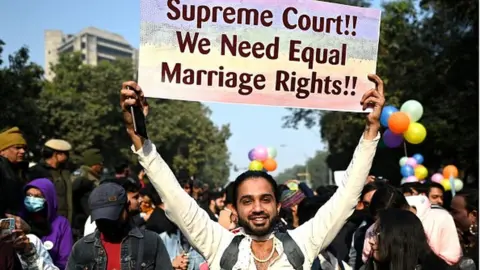Introduction
The right to marry is a fundamental human right, yet for many years, this right was denied to the LGBT (lesbian, gay, bisexual, transgender) community in numerous countries. The journey towards marriage equality has been marked by struggles, setbacks, and significant victories. Today, the fight for the right to marry continues to be a central issue in the broader struggle for LGBT rights.
Historical Context
The concept of marriage as a union exclusively between a man and a woman has deep historical roots in many cultures and religions. This traditional view was reflected in the laws of most countries, which did not recognize same-sex marriages. As societal attitudes towards the LGBT community began to shift in the latter half of the 20th century, activists started to challenge these restrictive laws.
Milestones in Marriage Equality
The journey towards marriage equality has seen several important milestones:
The Netherlands (2001): The Netherlands became the first country to legalize same-sex marriage, setting a precedent for other nations.
Canada (2005): Canada followed suit, recognizing the right of same-sex couples to marry.
United States (2015): The landmark Supreme Court decision in Obergefell v. Hodges legalized same-sex marriage across the United States, a significant victory for LGBT rights activists.
Taiwan (2019): Taiwan made history by becoming the first Asian country to legalize same-sex marriage.
The Importance of Legal Marriage
Legal recognition of same-sex marriages carries profound significance for the LGBT community:
Equality and Dignity: Legal marriage affirms the equality and dignity of same-sex couples, recognizing their relationships as valid and worthy of the same respect as heterosexual marriages.
Legal Rights and Benefits: Marriage confers numerous legal rights and benefits, including inheritance rights, spousal benefits, tax advantages, and the ability to make medical decisions for one’s partner.
Social Acceptance: Legal recognition of same-sex marriages promotes social acceptance and reduces stigma, contributing to a more inclusive and equitable society.
Ongoing Challenges
Despite significant progress, many countries still do not recognize same-sex marriages, and in some places, LGBT individuals face severe legal and social persecution. The fight for marriage equality is far from over:
Legal Barriers: In many countries, constitutional and legal barriers explicitly prohibit same-sex marriages. Changing these laws often requires sustained activism and legal challenges.
Cultural and Religious Opposition: Deep-seated cultural and religious beliefs continue to oppose marriage equality, making it difficult to achieve legal changes.
Discrimination and Violence: In some regions, LGBT individuals face discrimination, violence, and even death for advocating for their rights, including the right to marry.
The Path Forward
Achieving global marriage equality requires a multifaceted approach:
Legal Advocacy: Legal challenges and advocacy are crucial in overturning discriminatory laws and achieving judicial recognition of marriage rights.
Public Awareness and Education: Raising awareness and educating the public about the importance of marriage equality can help shift societal attitudes and reduce opposition.
International Pressure: International organizations and foreign governments can play a role in encouraging countries to adopt more inclusive policies.
Community Support: Support from allies and within the LGBT community is essential for sustaining the fight for marriage equality.
Conclusion
The right to marry is a basic human right that should be available to all individuals, regardless of their sexual orientation or gender identity. While significant strides have been made in many parts of the world, the fight for marriage equality continues. Achieving this goal requires persistent advocacy, legal challenges, and a commitment to human rights and equality. The journey towards marriage equality is not just about legal recognition; it is about affirming the dignity, love, and humanity of all people.
This article has been contributed by harit parsendiya , a student at ITM University Gwalior.
Attention all law students!
If You Want To Publish Your Article On Law Media Contact - 7974887414 ( ONLY WATSAPPP )
Are you tired of missing out on internship, job opportunities and law notes?
Well, fear no more! With 5,000+ students already on board, you don't want to be left behind. Be a part of the biggest legal community around!

This article has proved to be very helpful😇
ReplyDeletethanks mam
Delete